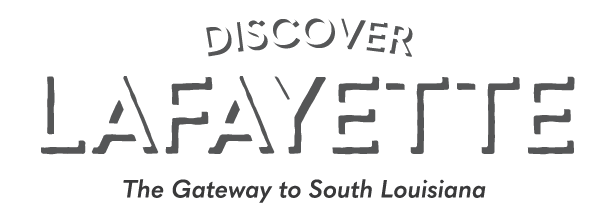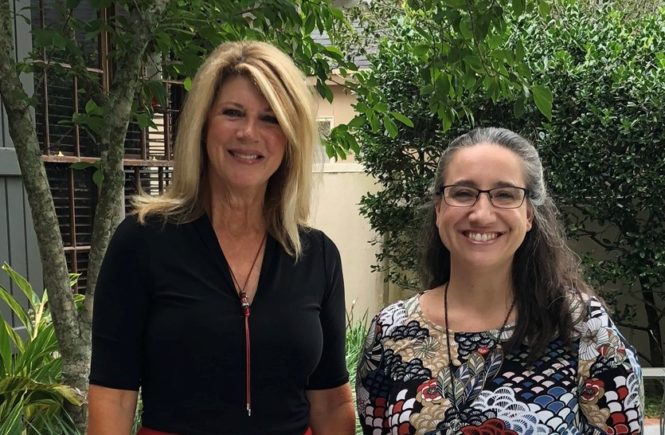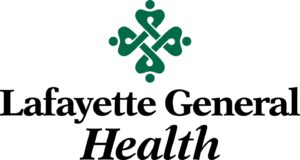Podcast: Play in new window | Download (Duration: 49:35 — 68.1MB)
“Homelessness is one paycheck away for many people in America and Covid-19 is really testing this,” says Leigh Rachal, Executive Director of Acadiana Regional Coalition on Homelessness and Housing (“ARCH). Leigh has served in this capacity for four years and each day she is guided by her “belief in the wild idea that housing is a basic human need and that everyone should have access to safe, decent, and affordable housing.”
Leigh joined Jan Swift on Discover Lafayette to provide an overview of the homeless situation in Acadiana as of early June 2020. Louisiana Governor John Bel Edward’s moratorium on evictions is set to end on June 15, 2020; Louisiana law mandates five days notice for nonpayment of rent and that means that by June 20, the first wave of homelessness is set to unfold. A second wave is expected by August 23rd as the CARES Act Eviction Moratorium is lifted and landlords owning properties that were federally financed or assisted will be able to evict their tenants.
Evicted tenants are not legally absolved from paying back due rent and will still owe these monies while trying to come up with sufficient funds to find a new place to live. The reality is that 45% of renters in Louisiana are housing “cost-burdened,” meaning that they pay more than 35% of their income on housing costs with no safety net to back them up or cover these delinquencies.
ARCH’s main funding is derived from HUD as a Continuum of Care (CoC) agency that coordinates housing and services funding for homeless families and individuals. ARCH is the lead agency for HUD in Acadiana and covers an eight parish region which includes Acadia, Evangeline, Iberia, Lafayette, St. Landry, St. Martin, St. Mary and Vermilion. The agency is client-centered and utilizes national best practices working to get people housed first and then providing “wrap-around support” to make sure they stay housed. ARCH also assists people who may just need a rent deposit or help negotiating with a landlord to get needed repairs done. She mentioned that many elderly and disabled persons don’t have access to adequate plumbing or a working kitchen in homes that they own and ARCH assists with those needs.
COVID-19’s impact on the economy and jobs has strained resources available to help the homeless, with an increase of 58% or over 200 families rendered homeless since the coronavirus shut down in mid-March. These families were not leaseholders but were doubled and tripled up with family or friends or staying in a hotel because they had lost their job and home before COVID hit. Money ran out or the stress of too many people under one roof led to their homelessness. Leigh spoke of the “hotel trap” many find themselves in; hotels are expensive and it can be hard to save up for a deposit and the first month’s rent when you expend all resources before the end of the month, month after month, with no savings.
Shelters have reached maximum capacity and the closure of the Salvation Army this week (which was planned before COVID) exacerbated the shortage. ARCH has negotiated with local hotel owners to put up homeless families at a reduced rate, and the hotels are also extending the offer to “get an extra room free if two are paid for.” Community donations have generously been collected to go toward this effort and emergency funding was also utilized. (Donations may be made here.) The Louisiana Housing Corporation is covering hotel costs now through the Emergency Solutions Grants fund, but this fund is not unlimited.

“We know there will be an enormous need for help with rental assistance once the moratorium on evictions begin. People keep asking me, ‘What’s the plan?’ Right now, there is no plan because there are no resources to meet the need. Without housing stability, we can’t get back to normal if employees don’t have stable housing. Landlords are struggling also. We need to be talking more about what rental assistance is needed in this community”
A total of 233 homeless households are in hotels now and new ones are being identified. Currently, 75 children from 35 households are living in hotels, and another 40 children are in family shelters. These children are vulnerable and statistics show that homeless children are more likely to become homeless adults. The psychological trauma of being homeless affects educational attainment, makes social interactions more difficult, and is an event that can scar a person for life.
The inability to pay your utility bill is a good indicator of your ability to pay your rent or mortgage. Lafayette Utility System reports that some 5000 households are sixty days or more behind on their payments. Leigh stated that if only 10% of those families become homeless, that will still be a crushing load on the homeless situation. The average rent for a two-bedroom apartment is $750 to $800 in our region and if you need to pay two or three months to catch up on your rent, it may be an impossible situation. And this is not just affecting renters; it is affecting the landlords who are having to pay the mortgage on their rental properties. It is is easy to see the domino effect of this scenario and the anticipated fallout.
An Emergency Solutions Grant in the amount of $713,000 by HUD was recently awarded to ARCH to be used for rent and utility assistance which must be divided among the eight parish district. A recent vote by the Lafayette City and Parish Councils to direct the entirety of $850,000 in federal coronavirus funds to small businesses in lieu of housing and utility assistance was a tough blow to local non-profits serving the homeless.
Leigh Rachal knows that homelessness is a symptom of a larger issue. According to a 2019 study by Prosperity Now, 40% of Americans are only one missed paycheck away from poverty, being “liquid-asset” poor with no savings, even to meet a $400 emergency need. This is not just a problem for the poor either; middle-class and higher-income earners can find themselves in the same boat with no savings and expending too much money on the costs of housing. Acadiana is no different from the rest of the country. COVID has simply exposed another whole group of folks who are now “housing unstable” and rendered homeless.”
Anyone needed utility assistance or looking for a shelter should dial 211 for help. You will be directed to the most appropriate resource for your particular situation. All of the lead agencies working with ARCH stay in contact to keep a current assessment of resources and needs for the community as a whole.
While it may seem like charity to some, Leigh stresses that it is far less expensive as a society to invest in safety-net systems to prevent homelessness. The long term impact on lives and the ripple effect upon communities are extremely expensive. “If you invest on the front end, it is much less costly to the community,” Leigh Rachel states.
ARCH is currently accepting donations of household items to aid people once they move back into stable housing. No clothes please, but dishes, sheets, towels, and other household necessities are needed. Interested parties should email Leigh Rachal at arch@archacadiana.org, phone (337)967-0995 or visit https://www.archacadiana.org/.
Leigh Rachel is a passionate spokesperson for stabilizing our housing market and looks at the long term solutions needed to turn this tide around. She believes that COVID is an opportunity to prove that we can end housing instability. A worker making $7.25 per hour has to work 78 hours per week to pay the average rent of $800/month for a two-bedroom apartment. Increasing the availability of affordable housing, raising the minimum wage, and making housing vouchers available to extremely low-income people are the first steps to consider.
Thank you, Leigh! As we closed our interview, your ‘non-dualistic’ heart and approach to life were commended. May you continue to shine the light on the need in our community for housing stability and encourage unconditional love for each of our neighbors.





